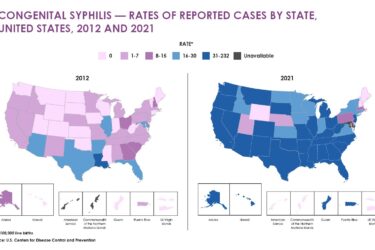
Many adults are not getting the vaccines they need; often because of the cost or a belief that they are healthy and don’t need them, two public health experts told AHCJ during a members-only webcast last month.
While health care providers generally do an effective job of vaccinating children, less than half of American adults are getting vaccinations for the flu (influenza), hepatitis B, shingles (zoster) and whooping cough (pertussis). Just 60 percent are getting a vaccinated against a serious lung infection, called pneumococcal pneumonia. The vaccination gap leaves adults at risk for preventable illness, disability and early death.
“We aren’t doing well protecting our public against these vaccine-preventable diseases,” said Litjan (L.J.) Tan, chief strategy officer at the Immunization Action Coalition, a nonprofit that works with the Centers for Disease Control and Prevention to educate health providers about vaccine recommendations.
Also speaking at the April 24 webcast was Laura Hanen, co-chair of the Adult Vaccine Access Coalition, a coalition of health care providers, pharmacies, consumer groups and public health organizations that aims to reduce cost barriers to patients and providers, as well as preserve federal funding for adult vaccine programs.
Every year 50,000 adults die from an infectious disease that could have been prevented if the person had received a vaccine, according to the coalition. Vaccine-preventable diseases are among the top 10 causes of death in the U.S., according to the CDC. Further, the preventable diseases cost the U.S. economy at least $15.3 billion annually in medical expenses and lost work productivity, according to a study published in August 2015 edition of the Journal of Primary Prevention.
Among the most common reasons most adults aren’t getting their vaccinations are cost and inconvenience.
Federal, state and local governments have a patchwork of programs to help adults cover out-of-pocket vaccination costs, but many adults aren’t eligible for the assistance. Private insurers also create hurdles for physicians to receive reimbursement for adult vaccines, leading some to decide not to offer them to patients. Health providers may send patients to drug stores, which can be an extra time hurdle.
The Affordable Care Act mandated that adult patients with insurance purchased on the exchanges get vaccines at no cost, but if they choose a provider that is out of network, there is no requirement that any vaccine is covered. In other cases, the provider has so many other issues to discuss with patients, such as exercise, smoking cessation and obesity, that the physician often doesn’t have time to discuss vaccines and patients aren’t aware they need them, Tan said.
“We call this a missed opportunity,” said Tan, whose group is working on outreach to providers to encourage them to talk about vaccinations with adult patients.
Another obstacle to adult vaccination is busting certain myths. Many adults don’t believe they need vaccines because they either feel healthy or fear the vaccine will cause illness, Tan said. What many adults don’t understand, he added, is that even if the vaccine isn’t 100 percent successful in preventing disease, it can reduce negative health impacts if the person does get sick.
“The flu vaccine gets this bum rap,” he said. “We focus on the effectiveness of it and the incidence of preventing the flu, but what we aren’t talking about is the benefits of (the vaccine) if you happen to get the flu. The complications will be ameliorated (and you will be sick for fewer days). If you are 65 and you get the flu and have to be hospitalized, you will come out of the hospital in a walker because your muscles will have atrophied. So I ask my older adult patients, do you want to risk your independence by not getting vaccinated?”
For story ideas on adult vaccinations, Hanen and Tan suggested journalists look to recent outbreaks as a story peg. For example, seven health care facilities in Kansas recently announced that patients unknowingly may have been exposed to measles in April. Measles is among the most contagious of all infectious diseases.
“Who do you think spreads (measles)?” said Tan. “It’s adults; adults do it.”
For resources and story ideas, check out this newly updated AHCJ tip sheet on adult vaccinations.








